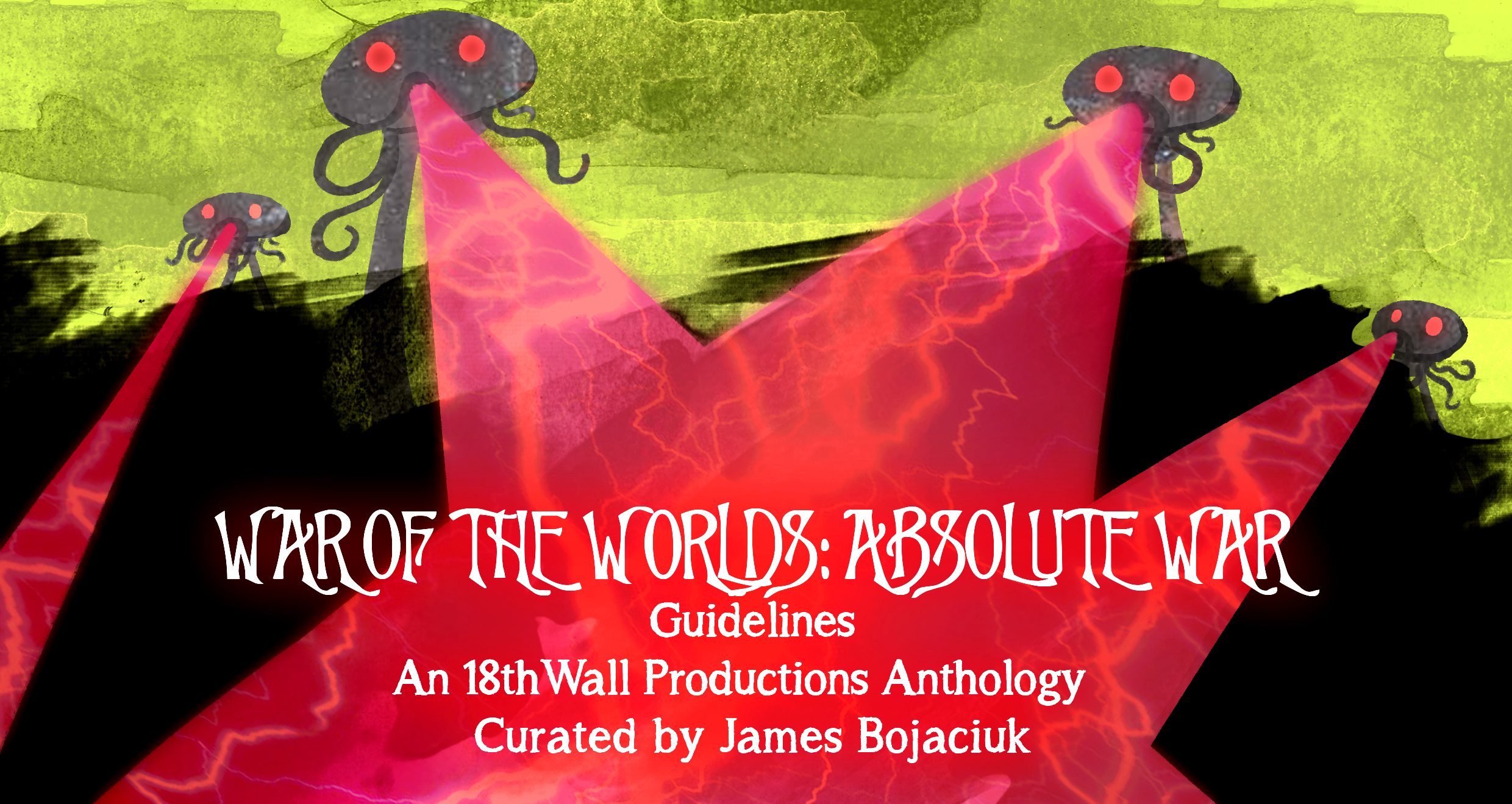
Overdue: Tales of Mystery and Adventure
Returning History’s Lost Books to Circulation
Throughout history, great books have been lost. Books with forgotten knowledge; books with information that could rewrite history as we know it; or simply books that could make someone a pretty penny.
Many of these works, are, no doubt, gone for good.
Some, however, may still survive as lone copies hidden in musty archives, quirky bookshops, jealously guarded private collections, dismal castles, or remote caverns.
A global effort has been launched to find them. These are the stories from behind the scenes.
The Basics
Overdue is a shared-universe anthology joining together M.H. Norris’s All the Petty Myths and Jon Black’s Bel Nemeton.
Bring us stories about questing for lost books. The books may come from actual history, myth, literature (remember to check copyright status), or your imagination. Among the genres we will consider are Adventure, Gothic, Horror, Pulp, Mystery, Magical Realism, Thriller, Urban Fantasy, and Weird Fiction.
More important than the genre are meeting the five criteria below:
1) Feature innovative storytelling and excellent writing.
2) Revolve around the search for a lost book (see “The Set-Up” and “Sample Books” below).
3) Fit into the parameters of the Shared Universe (see “Defining the Shared Universe” below).
4) As part of the Shared Universe parameters, the main action must occur in the present day. Flashbacks and vignettes exploring the history of a book, however, are perfectly acceptable.
5) Also as part of the Shared Universe parameters, stories must take place in our world (Sorry, no alt-history, steampunk, stories set on other planets, etc.).
The Set-Up
Over the millennia, many books have been lost.
The Booker Foundation (see Notable Bits of Worldbuilding below) is paying handsomely for any of these missing treasures that can be returned to the light for humanity’s benefit (at least that’s the foundation’s official story). To aid in the retrieval of especially desirable works, the Foundation may even pony up some cash or equipment in advance.
While the Booker Foundation is fronting the cash, the project is co-chaired by Dr. Vivian Cuinnsey, Professor of Linguistics, and Dr. Rosella Tassoni, pioneer of Forensic Mythology.
The call has been put out to respected archaeologists, historians, linguists, anthropologists, antiquarians, and book scouts. But the foundation is not fussy (indeed, the Booker Foundation’s founder has a shady reputation of his own). It is equally willing to work with mercenaries, morally ambiguous archaeologists, treasure hunters, gentleman and gentlewoman rogues, warlords, and even the street kid who got lucky (or unlucky) and snatched the right backpack.
Caveat Cliché
Certain tropes are common to “lost book” narratives. We’re not saying don’t use them but, if you do, present us with fresh angles rather than tired old saws
- Alexandria: Yes, we’re all sorry the Great Library and its contents are no more. But, for that very reason, it has become cliché. If you intend to use it in your story, find a new approach. Show us something we’ve never seen before.
- The Cthulhu Mythos: Submissions would do well to stick to minor tomes. Even then we’d prefer a new Mythos book. If you plan on using one of the major tomes (The Necronomicon, Unaussprechlichen Kulten, Cultes de Goules, the King in Yellow, etc.) be prepared not only to innovate but to dazzle. Querying the editors to ensure we think you’re on the right track would be a great idea.
- Suppressed/Hidden by the Vatican: While not quite as overused as the above two, in recent years it has still come to feel like the “default setting” for this kind of story. If you go this route, make sure your story doesn’t read like a Da Vinci Code clone (and accurately represents Catholicism; there’s no reason to look silly).
Note: if submitting a Supernatural story, take care that the supernatural element does not become a story-telling crutch. While the editors are not opposed to such stories, any supernatural elements need to enhance the story.
Inspirations
The Librarian (film series)
The Librarians (television series)
The Shadow of the Wind (Carlos Ruiz Zafon)
Treasure (Clive Cussler)
Saturday the 14th (1981)
The “Johnny Depp Deals with Scary Books” Duology:
The Ninth Gate (1999)
Secret Window (2004)
The Evil Dead (1981)
“The Unique Hamlet” (Vincent Starrett)
The Historian (Elizabeth Kostova)
“The History of The Necronomicon” (H.P. Lovecraft)

Defining the Shared Universe
Overdue brings together two separate series. At its heart, All the Petty Myths is a forensic-focused Procedural Mystery while Bel Nemeton fuses Historical Fantasy and Modern Pulp. Both, however, borrow freely from the conventions and flavors of other genres and are open to a range of styles.
Similarities
- Protagonists: Both worlds feature strong, competent, and cerebral protagonists and supporting characters.
- Research: Each world is supported by extensive research—from both the author and the characters—which helps drive the flavor and style of stories.
- “Real” World: Superficially, both stories take place in our world. Any differences lurk beneath the surface or hide in dark corners. Bel Nemeton, especially, will tinker with small details of history…but it all washes out to the present we know.
- Magic and the Supernatural: Both series plays magic and the supernatural close to the chest, while extraordinary events inviting supernatural explanation do occur, mundane explanations (even if implausible) usually present themselves. This approach is acceptable as is a completely mundane presentation but avoid explicitly, unambiguously supernatural elements. These do not keep with the series’ style.
Differences
- Action: Bel Nemeton’s protagonists display a two-fisted streak that is less common in All the Petty Myths. This may reflect the differing situations in which characters find themselves rather than intrinsic difference in capabilities. As long as it meets the anthology’s other parameters, any level of physical action (including none at all) is acceptable.
Notable Bits of Worldbuilding
The following three characters from the shared universe are part of this anthology’s backstory. They are available for inclusion in submitted stories with the caveat that their presentation may be edited to conform to existing canon or anticipated future story arcs. If you have concerns regarding whether a particular treatment of these characters is appropriate, please feel free to query. The best way to get to know them to read their books!
Dr. Rosella Tassoni (All the Petty Myths)
Biography: Dr. Rosella Tassoni currently is based in Washington D.C. where she has opened up her own private investigation office, All the Petty Myths. She is a first-generation Italian American and is the oldest of three siblings. From an early age, Rosella has been fascinated with the idea of people who hide crimes behind urban myths, legends, and well-known folklore. To further that interest, Rosella is working to formally establish the field of Forensic Mythology and have it recognized by the American Academy of Forensic Sciences and similar organizations around the world. Currently, Rosella is best known for the events that happened in Huntington, New York in the fall of last year (see “Midnight” in All the Petty Myths). While on a case, she was almost murdered. The encounter left her with physical and mental injuries, both of which she is still recovering from.
Personality: Rosella is passionate and stubborn. She is desperate to prove herself not only to her peers in the field of forensics but to her parents (who believe she should come home and take over the family business). At times she is still trying to prove it to herself that she can make it doing what she loves, but will hide that below her passion. She will not drink from anything but a sealed bottle. She’ll eye controlled fires warily; uncontrolled fires will push her toward a new breakdown. While she tries to hide it, she has PTSD from what happened in “Midnight.”
Appearance: Early-30s, but people often think she’s younger. Shoulder length brown hair, large brown eyes. Average build and average height. Rosella often wears light long-sleeve tees and loose blouses to hide the long, deep scar on her right arm she received in Huntington.
Dr. Vivian Cuinnsey (Bel Nemeton)
Biography: Chair of the Celtic Linguistics Department at a prominent university. Her academic specialty is extinct Celtic languages, particularly those of the British Isles. Her interest in Celtic language, culture, and history is personal as well as professional, she is a second-generation Manx-American, visiting the Isle of Man extensively during her youth and learning Manx from her grandfather as a young girl. Brought in to examine Celtic inscriptions discovered in Central Asia, that find ultimately led Cuinnsey to France’s Brittany Peninsula and the tomb of an individual closely matching the Merlin of myth and legend. Among the objects in the tomb were more than 1,000 parchment sheets containing coded writing. The slow process of deciphering those parchments has become her major professional focus. Together with Dr. Rosella Tassoni she co-administrates the lost books project and the grant that funds it.
Personality: Methodical and analytical. Principled, but willing to indulge in a little bit of “ends justify the means.” Intensely loyal. Will eagerly dust it up with bad guys or risk life and limb at to achieve important objectives.
Appearance: Late-30s, black hair, gray eyes.
Jake Booker (Bel Nemeton)
Biography: A wealthy oil and gas man, Booker earned a second fortune as a treasure hunter (some of his past acquisitions have been ethically and/or legally questionable). To the surprise of many, he is a former Rhodes Scholar. Booker was Dr. Vivian Cuinnsey’s partner in the discovery of Merlin’s tomb. Of late, Booker has tried to walk the straight-and-narrow, even creating the Booker Foundation to help bring lost treasures back into the light for the common good. While his foundation provides the funding, he takes a hands-off approach to the lost books project, leaving it in the more than capable hands of Drs. Tassoni and Cuinnsey.
Personality: Curious and pragmatic (sometimes to the point of moral ambiguity). Though not a linguist, he has a knack for languages. Literally and figuratively a gambler, he frequently uses gambling metaphors. If he believes being underestimated will gives him an advantage, will downplay his intelligence and knowledge-base.
Appearance: Late-40s, shaggy silver hair, blue eyes, athletic physique.
A Description of The Booker Foundation Headquarters
From Sean Michael O’Dea’s submission
A few blocks off Houston’s historic Market Square and capping the end of a quiet commercial row sits a narrow, two-story building whose red brick and pale mortar looks as though its weathered hurricanes and sweltering heat for over a century. From the tree-shaded street outside, it could easily be an art gallery or trendy wine bar. But as I walk through the unmarked glass door, I am greeted by the smell of old parchment, worn leather, and oiled wood. An array of Old World sofas, inviting leather chairs, and wooden bookcases fill the lobby. Each mahogany sentinel’s shelf is decorated with old books of varying discoloration and wear that complement the antiques situated around the room. Most of the antiques have been meticulously placed under recessed lighting or above wall-mounted sconces so the accompanying placards can be read. The entire space is clean and, despite its small, cozy feel, is big enough to host a stuffy charity party…
…“Hi there. Welcome to the Booker Foundation. You must be Mr. Conway?” a young man greets me from behind an executive desk at the top of the lobby. He’s not Texan by his accent and his business casual attire screams thrift store chic. Coupled with his bloodshot eyes, five o’clock shadow, and disheveled hair, I’m guessing he’s a graduate student at some nearby university who spends way too much time staring at electronic databases…
…“Thanks,” I reply. I turn to scan the lobby again, this time paying attention to the walls. Two top-model surveillance cameras hang in opposite corners. A handful of motion sensors are also cleverly concealed throughout the room. And at both the front and paneled door there are multiple breach sensors. And not a single visible wire. So while this building may be turn-of-the-century, the security system is state-of-the-art. The one thing that catches my eye, however, is the painting on the east wall. I step closer to it and the rustic wooden floorboards creak as I do. The Old West painting is large enough to fit a concealable safe behind it. And, yes. I check for that first…
…“Hey, this painting speaks to me,” I reply. The painting features three cowboys mounted atop muscular quarter horses and leading cattle into a wooden pen. The horizon behind them is dusky, but a massive storm cloud looms in the background. The whole thing reminds me of my home state of Wyoming…
“Mr. Conway? Dr. Cuinnsey will see you now,” the grad student announces, gesturing towards the open paneled door.
…The office is distinctly smaller than the lobby and exchanges red-brick walls for wood paneling. To the right is another door that leads to a washroom and storage area according to the city plans. There is also a refurbished staircase leading to the second story. We have zero intel as to what’s up there. To the left is a bar stand with a medley of mid and top shelf bourbons. There are also more bookcases filled with books and framed pictures of Jake Booker – the foundation’s namesake. Jake Booker is a meritoriously promoted captain of the oil and gas industry. He’s also made a veritable fortune as a treasure hunter. Our intel shows he is a Rhodes Scholar, fluent in multiple languages, an avid gambler, and has a multitude of political connections, which serve him well as he seems to find trouble in nearly every foreign country he steps foot on. Mr. Booker is in his late forties…[and] shaggy silver hair and an impressive physique. He is classically handsome and, apparently, never takes a bad picture. Seriously, the pictures around the room show him on a safari, sailing a sleek catamaran, flying a helicopter, and driving a vintage Chevy truck. If I didn’t know better, I’d say he’s an actor in Viagra commercials. Not that he needs that, mind you. I’m sure he doesn’t. But just reading his psych workup made me sprout more chest hair…
…Behind her desk along the far wall and beneath a set of high windows is a large abstract painting. Pastel orbs revolve around countless lines that swim through blurry colors and meet at chaotic angles.
“Is that a Kandinsky?” I ask.
“An original, yes. Mr. Booker has an affinity for abstract art,” she replies…
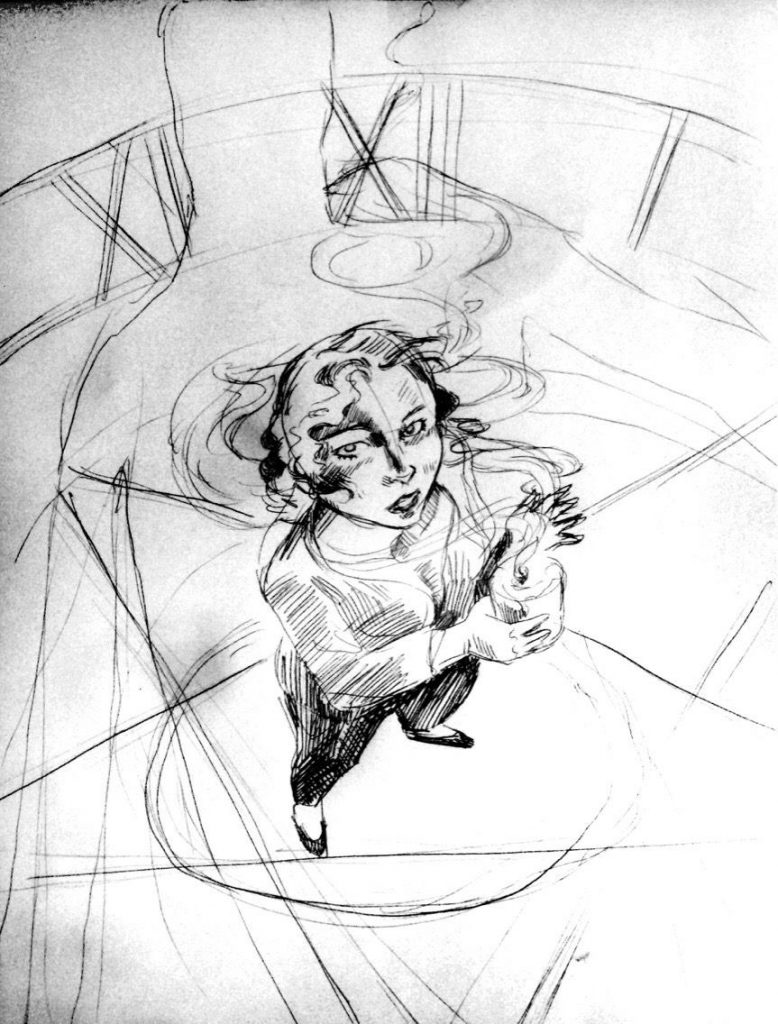
Potential Inspiration
Real Lost Books
These are included for inspiration and flavor. They are examples of the kinds of things we’re looking for. If one of them strikes your fancy, however, feel free to use it. In this case, you might want to query first, just so we don’t get 10 stories about Austen’s Sandition.
The Annals by Tacitus: Volumes 7-10 and parts of 5, 6, 11, and 16 from this seminal work on Roman history are missing. What gaps could they fill in on the inner workings of Roman governments, the lives of emperors and senators, and other mysteries of the empire?
Etruscan-Latin Dictionary by Claudius: Attributed to the Emperor Claudius and written during the 1st century BC, this work could allow translation of the thus-far undeciphered Etruscan texts, possibly revolutionizing our understanding of the Mediterranean during antiquity.
Inventio Fortunata by Author Unknown: Alleged to chronical the travels of an unnamed Franciscan monk in the North Atlantic, including the geography and zoology of the Arctic. Copies survived long enough for Gerard Mercator to consult it and use it to draw the arctic in his revolutionary map. What else did it contain?
The Percival of Kyot the Provincial by Kyot: Wolfram von Eschenbach used Kyot’s version of Percival to forestall any criticism about his deviations from Chretien de Troyes’ version. Von Eschenbach introduced symbolism related to secret societies and strange alchemical symbolism into his Parzival. What if Kyot’s version really did exist? What if the alchemical societies originated with him? What does that have to say about the Arthurian world? [Claimed.]
Sandition by Jane Austen: Revolving around a young person’s visit to a seaside town (sound familiar?) was allegedly incomplete at the time of her death. But was it really? Austen believed the novel would “tantalize posterity.” Why? What did Austen know? And did someone decide it was better if the novel’s final chapters never saw the light of day (at least above the waves)?
Strange things happen in small seaside communities.
The Strange Case of Dr. Jekyll and Mr. Hyde (first draft) by Robert Louis Stevenson: Officially, Stevenson burned the first draft and started over from scratch after his wife gave it a scathing review. But is that the real reason? Perhaps Stevenson had sources he never acknowledged…and his first draft read too much like a “how-to” manual. [Claimed.]
The Yongle Encyclopedia [authors unknown]: created by command of the Emperor Yongle, the encyclopedia compiles the knowledge, thought, and wisdom of 14th-15th century China. The complete work ran to nearly 23,000 manuscripts and was so cost prohibitive only 3 copies were ever made. Roughly 4% of the work survives to present day. [Claimed.]
Lost Books from the Shared Universe
These, likewise are for color and flavor, examples of the types of texts that would easily fit into the anthology. They, too, are available for use if it strikes you fancy. Definitely query first, both to avoid overlap and to ensure submitted stories don’t conflict with canon.
The Akwar Plates (from Bel Nemeton): “Books” of beaten copper sheets bound together and inscribed in an unknown alphabet. Acquired by an explorer in West Africa during the 19th century, he claimed them to be 7th century texts from the Empire of Akwar (Empire of Ghana) recording myths and folklore. At one point housed at Oxford’s Bodleian Library, they have since disappeared.
Al-Kitaba Manat (from Bel Nemeton): Compendium of long vanished Arabian history and geography compiled by an unknown author in the late 6th century, widely regarded as myth. Sir Richard Burton claimed to have accessed a copy in the 19th century and then written down as much of it as he could remember (then again, Burton claimed a lot of things). [Claimed]
Donaukelten und Roms Grenzen (from Caledfwlch): Published in the late 18th century, one of the earliest works about Noricum, a Celtic kingdom occupying much of Austria and Slovenia before Rome absorbed them in the First century. The text uses a variety of classical and archaeological sources not available to later writers as well as preserving a number of inscriptions in the untranslated Noric language for which the originals have been lost. A copy was rumored to be kept in the Hapsburgs’ imperial library.
The Early Works of Margaret McConnell (from All the Petty Myths): Dr. Margaret McConnell is one of the greatest mythologists of the 20th Century. Her early works from the 1920s-1940s (three volumes, one for each decade) were not widely printed and thus are extremely rare. After Jazz Street, one copy of each rests in the personal library of Dr. Rosella Tassoni but there are still others out there. These volumes record the various notes and adventures of what is becoming known as Forensic Mythology. Margaret McConnell is one of Rosella’s biggest influences.
The Life of St. Radegund (from Bel Nemeton): A biography and hagiography of a pious 6th century Merovingian princess later elevated to sainthood. No confirmed copies survive. Tales place a single copy in a remote abbey established by the princess, its monks reluctant to let outsiders see a document that may paint their patroness as more Cathar than Catholic
The Whole Art of Detection (from All the Petty Myths via Sir Arthur Conan Doyle’s “The Adventure of the Abbey Grange”): The rumored collection that Sherlock Holmes himself created detailing his cases and his secrets to success. Dr. Rosella Tassoni doesn’t believe the book exists. A note if you choose to use this one: the manuscript will either be incomplete or a fake as the real, finished draft is already in the possession of soon-to-be-Dr. Adalaide Baynes (cf. The Whole Art of Detection).
Acquisitions: Getting Hold of the Series
Jon Black’s Bel Nemeton

UNCOVERING MERLIN’S TOMB
A globe-trotting quest for the treasures of the historical Merlin.
From the Preditors and Editors Readers’ Poll Award-Winning Author Jon Black…
Carvings have been unearthed in the Middle East. They bear impossible names–Arthur and Merlin, albeit in a native transliteration. How did these names come so far? Do they imply the existence of a historical Arthur and Merlin? The scholars do what they always do. They arrange a press meeting.
But scholars aren’t the only attendees. After heavily-armed mercenaries steal the stone, Dr. Vivian Cuinnsey is forced to work with Jake Booker, a self-professed treasure hunter. Can he be trusted? Or is he just one more force after Merlin’s treasure for personal profit?
From the Middle East to the caves of Israel to German record rooms to Oxford’s secret underworld, chase Vivian and Jake in their pursuit of Merlin’s greatest treasure.
M.H. Norris’ All the Petty Myths
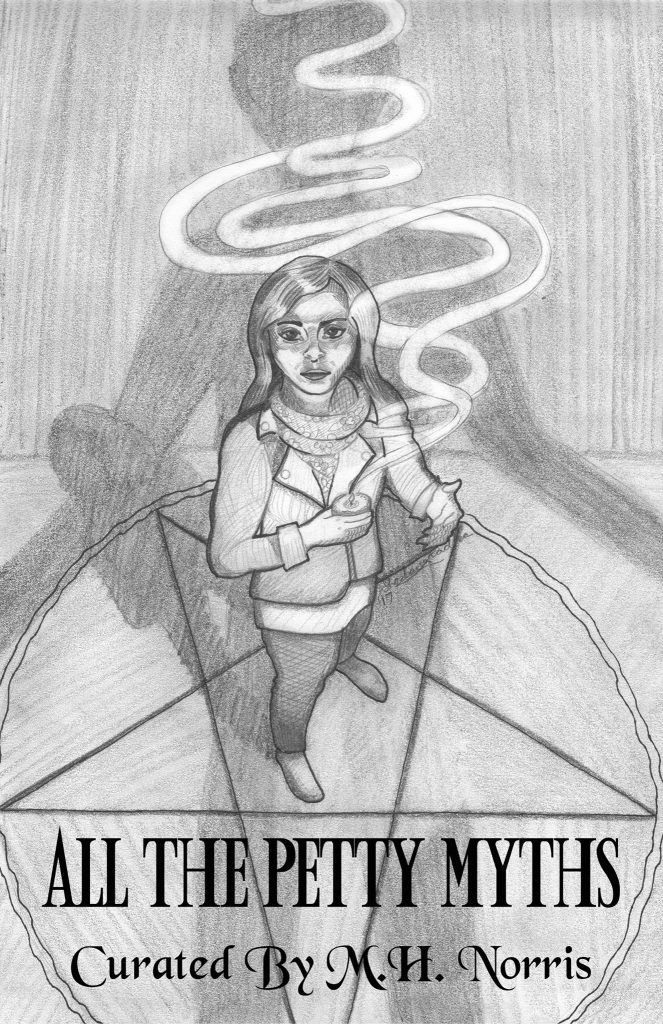 Lurking in your hometown and countless others, urban legends and folklore are all around us. To many, they exist solely as myth. But not for all. Sometimes a body is found, apparently killed by something from stories. Sometimes someone goes missing, all the clues pointing to something only spoken of around campfires. Then the police are called, or a detective, who must discover if there really is something in those stories…
Lurking in your hometown and countless others, urban legends and folklore are all around us. To many, they exist solely as myth. But not for all. Sometimes a body is found, apparently killed by something from stories. Sometimes someone goes missing, all the clues pointing to something only spoken of around campfires. Then the police are called, or a detective, who must discover if there really is something in those stories…
Featuring M.H. Norris’ “Midnight,” which debuts her new series. Dr. Rosella Tassoni, a Forensic Mythologist, is hired by the FBI to consult on a case where seeming old world folklore is cross-contaminated by internet fauxlore. High school students are being murdered. Will the experience break her?
A detective who wishes to write his own mysteries, but can’t bring his words to life, is now trapped in a “Locked Room” mystery by Marc Sorondo. Is the killer a ghost, or a clever human?
Sherlock Holmes and his partner’s partner, Mary Watson, investigate a mad artists. He insists his doppelganger has replaced him, and that he himself is locked away in his painting. How can he see a painting which no-one else can see? James Bojaciuk answers this question in “Doppelgangers (and Other Artistic Piffle).”
A mournful soul on a lonely highway, calling for death, is the center of a murder case in D.J. Tyrer’s “Tuttle and Gretel.” What is the Vanishing Hitchhiker?
Presented by award-winning mystery author M.H. Norris, All the Petty Myths confronts folklore and urban legends with detectives, FBI agents, and private investigators.
M.H. Norris’ The Whole Art of Detection
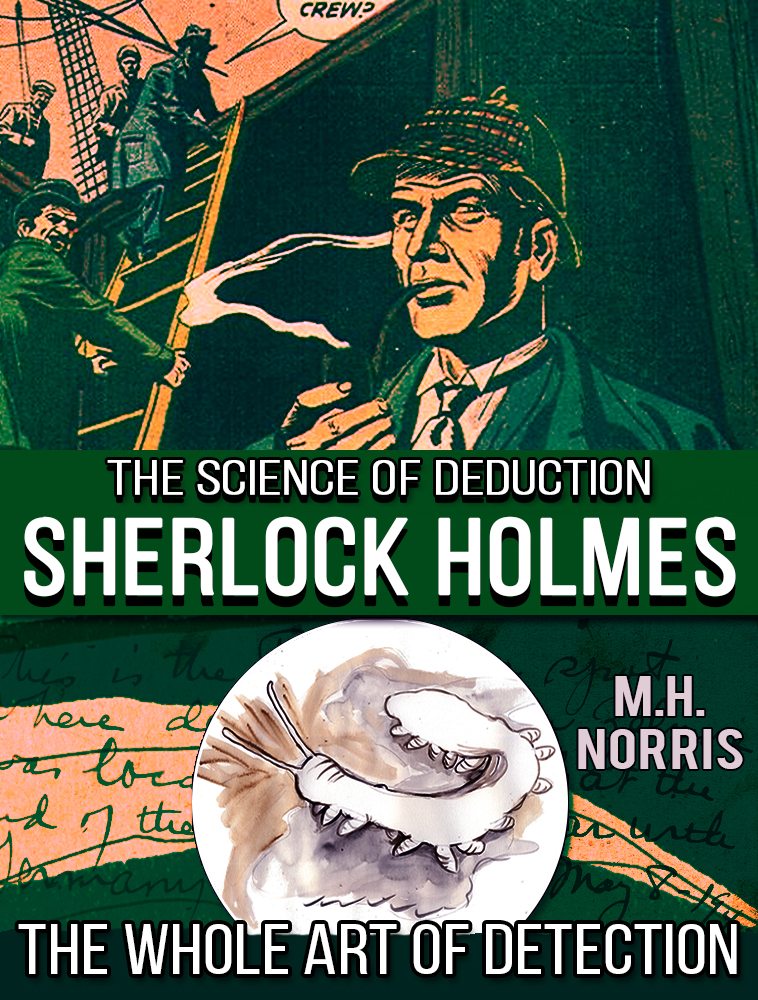
Set in the near future, The Whole Art of Detection is a homage to Arthur Conan Doyle’s later, science-fictional tales of Sherlock Holmes
Adelaide Baynes has a secret.
You may know her for her acclaimed commentaries on Watson’s stories. You may know her for her lectures on Sherlock Holmes. You may know her for being one of the world’s greatest private detectives, co-owner of The Whole Art of Detection.
What you do not know her for, however, is the safe in her office. It’s fireproof, it’s bolted down, and no-one would suspect it’s there. Inside is a book that shouldn’t exist, written in the clear, copperplate hand of a man long dead (if he was ever real)–Sherlock Holmes’ The Whole Art of Detection.
Dr. Baynes’ keynote speech is interrupted. A famous author has been murdered–and the crown demands she look into it. As she investigates, she descends into a world of death threats, bad writing, and obsessed fans. All this to say nothing of a fat white worm, said to be unknown to science…
Does this tie into one of Sherlock Holmes’ great unsolved cases?
Nicole Petit’s Speakeasies and Spiritualists
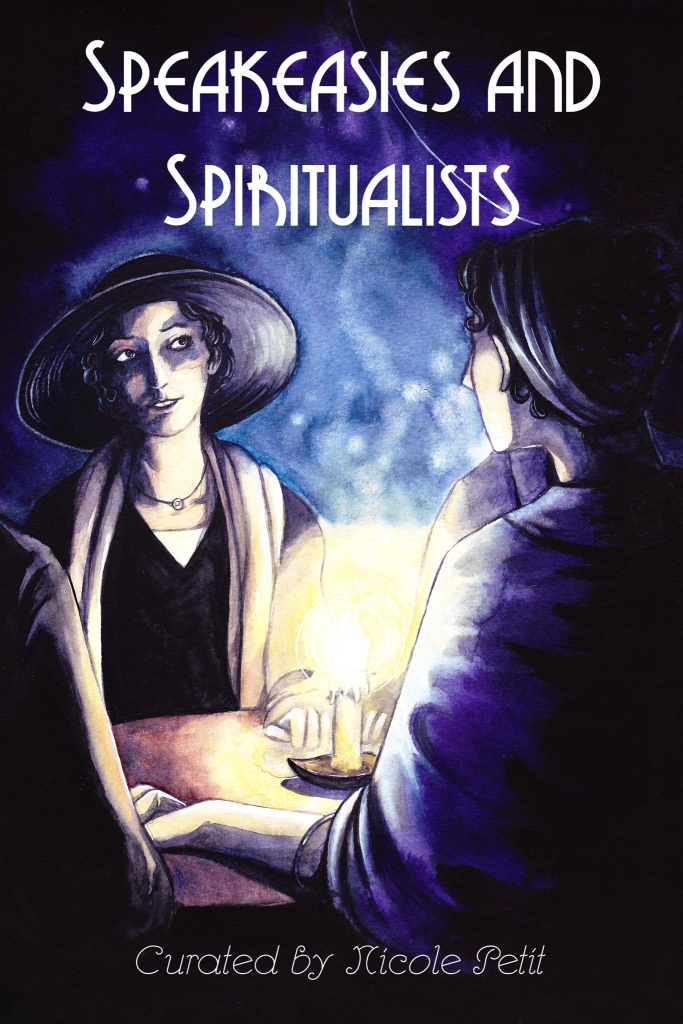
“Most mediums with their spurious and specious methods, with their ghostly trumpets and spectral hands, hold few secrets–and fewer terrors.”
– Rose Mackenberg, “Exposing the Weird Secrets of ‘Mediums’ and ‘Spirits'”
Rose Mackenberg is unjustly forgotten.
She was Harry Houdini’s chief investigator. She testified before congress about psychic fraud, and discovered all the tricks of the seance trade.
We proudly present the first fiction featuring Rose Mackenberg and her spook-busting career by award-winning mystery author M.H. Norris and James Bojaciuk.
Speakeasies and Spiritualists also presents eight stories inspired by Rose Mackenberg and the spiritualists Jazz Age milieu.
Psychic investigators on the trail of the trail of a jazz musician who seems to have crawled from the grave. Amateur, livingroom seances going very wrong when mixed with grief for those who died in the war. Strange men warning out of Florida storms. Dream Demons stalking Chicago, feeding off bar-dwellers, and floors painted with mystic stars.
FEATURING STORIES BY M.H. Norris, James Bojaciuk, Peter Rawlik, Josh Reynolds, John Linwood Grant, Jon Black, Donald J. Bingle, Aaron Smith, Brendan Foley, and William J. Martin. As well as original articles by Rose Mackenberg herself.
Contains M.H. Norris’ “All that Jazz” and Jon Black’s award-winning “Gabriel’s Trumpet,” both of which connect to and expand their fictional universes.
Submission Information
Payment: 5% of the gross profit will be paid for each accepted story. These payments will be issued to you at quarterly intervals.
Rights: First World Digital and Print.
Deadline: September 15th, 2018
Word Count: 4,000-20,000
Reprints? Yes, reprints are absolutely welcome. Just let us know in your email that the submission is a reprint. Please let us know how you would edit it to conform to the shared-universe design of this collection, however.
How to Submit your Story:
- All stories should be sent, as an attachment, to submissions@18thwall.com.
- The file must be formatted in .doc or .docx.
- The interior of the document must be in double spaced Times New Roman (12 point font).
- Indents must be placed through your system’s Paragraph function; do not set indents by pressing tab or space. If you already have tabbed or spaced indents, please remove them first. Please use full em dashes (—).
- At the top of your document, please include William Shunn’s submission header.
- Tell us a bit about yourself in the body of your email. Don’t stress this, it won’t make or break your submission.
- Place the collection you’re submitting to, your name, and your story title in the subject line of your email. For example, “Their Coats All Red / Rudyard Kipling / The Mark of the Beast”
Editor Bios
M.H. Norris most recently launched her mystery series, All the Petty Myths, which combines forensics and mythology. The first volume featured the premiere story “Midnight,” which won #2 Best Mystery Novel in the 2018 Preditors and Editors Readers’ Poll. Other stories in the collection took home #1 Science-Fiction/Fantasy Short Story and #1 Steampunk Short Story.
She is also known as the mystery maven and sci-fi sorceress. Her first novel, Badge City: Notches, earned her the 2016 Pulp Ark New Pulp Award for Best Novella, and her second novella, an All the Petty Myths spin-off, The Whole Art of Detection, took #4 Best Mystery in The 2016 Preditors and Editors Readers’ Poll.
Her short fiction has appeared in The Lemon Herberts, Saucy Robot Stories and Glass Coin, Speakeasies and Spiritualists, and a forthcoming story in Silver Screen Sleuths. She is co-host and co-producer on The Raconteur Roundtable, a popular podcast focused on in-depth, intimate interviews with authors, actors, and other creators.
In addition, she is the Television Coordinator for The Time Travel Nexus.
Jon Black is your basic “absinthe and BBQ” guy from Austin. He is the author of the Jazz Age supernatural mystery Gabriel’s Trumpet, voted “Best Short Story, all other genres” in the 2017 Preditors & Editors poll. Bel Nemeton, the first book in his series combining 6th century Arthurian historical fantasy with 21st century progressive pulp, is now available from 18thWall.
He also writes for roleplaying games and is an occasional contributor to Steve Jackson Game’s Pyramid. His nonfiction includes extensive work in music history and music journalism. Look for him at jonblackwrites.com/, https://www.facebook.com/JonBlackAuthor/, and, when he remembers, on Twitter at @BlackOnBlues.
Download the Guidelines as a PDF




